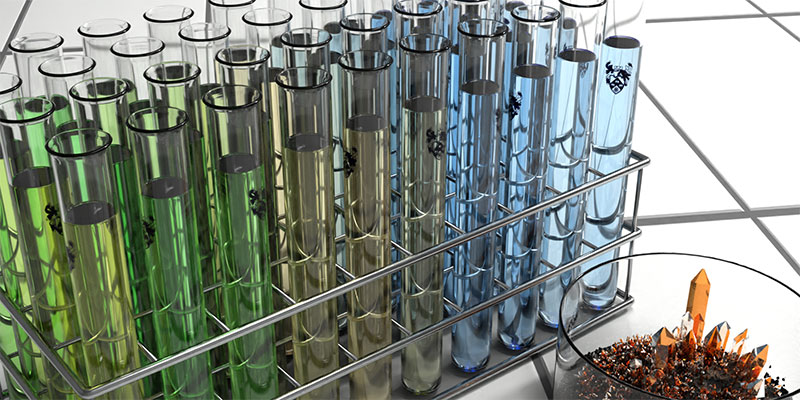
Inorganic chemistry is a branch of chemistry that focuses on the study of inorganic compounds, which include minerals, metals, and organometallic compounds. Inorganic chemistry primarily deals with compounds that do not contain carbon-hydrogen (C-H) bonds, which are the hallmark of organic compounds. Instead, it encompasses a wide range of chemical substances, including metals, minerals, coordination compounds, and transition metal complexes.
Subfields of inorganic Chemistry
Coordination Chemistry
Coordination chemistry is a major subfield of inorganic chemistry that studies coordination compounds. These compounds consist of a central metal atom or ion bonded to surrounding molecules or ions, known as ligands. Coordination compounds have a wide range of applications, including catalysis, materials science, and bioinorganic chemistry.
Organometallic Chemistry
Organometallic chemistry explores compounds containing metal-carbon bonds, often with metal atoms from the transition metals group. Organometallic compounds are vital in catalysis, particularly in the synthesis of organic molecules, and have applications in various industrial processes.
Main Group Chemistry
Main group chemistry focuses on elements in the s- and p-blocks of the periodic table. This includes the chemistry of elements like hydrogen, boron, carbon, nitrogen, oxygen, and many others. Main group compounds find applications in areas such as materials science, industrial chemistry, and environmental science.
Transition Metal Chemistry
Transition metal chemistry deals with elements from the d-block of the periodic table, which includes the transition metals. These elements and their compounds exhibit diverse properties and reactivities, making them essential in fields like catalysis, electronics, and coordination chemistry.
Bioinorganic Chemistry
Bioinorganic chemistry explores the role of metal ions in biological systems. It investigates metalloenzymes, metalloproteins, and metal-based drugs, among other topics, to understand how metals are essential for life processes.
Organometallic Catalysts
Organometallic compounds often serve as catalysts in a wide range of chemical reactions. Studying their reactivity and design is critical for the development of more efficient and sustainable chemical processes.
Solid State Chemistry
Solid state chemistry investigates the synthesis, structure, and properties of solid materials, including ceramics, semiconductors, and superconductors. This field is important in materials science and technology.
Inorganic Synthesis
Inorganic synthesis involves the design and preparation of new inorganic compounds, often with specific properties or functions. It plays a role in the development of new materials and technologies.
Industrial Applications
Inorganic chemistry has numerous industrial applications, including the production of metals, ceramics, catalysts, and specialty chemicals. It contributes to fields such as metallurgy, electronics, and energy storage.
Environmental Chemistry
Understanding the behavior of inorganic compounds in the environment is crucial for addressing environmental issues, including pollution and the management of hazardous waste.
Inorganic chemistry is a diverse and interdisciplinary field that intersects with various branches of chemistry and other scientific disciplines. It plays a vital role in advancing technology, materials science, medicine, and our understanding of the natural world. Researchers in inorganic chemistry work on designing new compounds, understanding their properties, and developing practical applications to benefit society.
